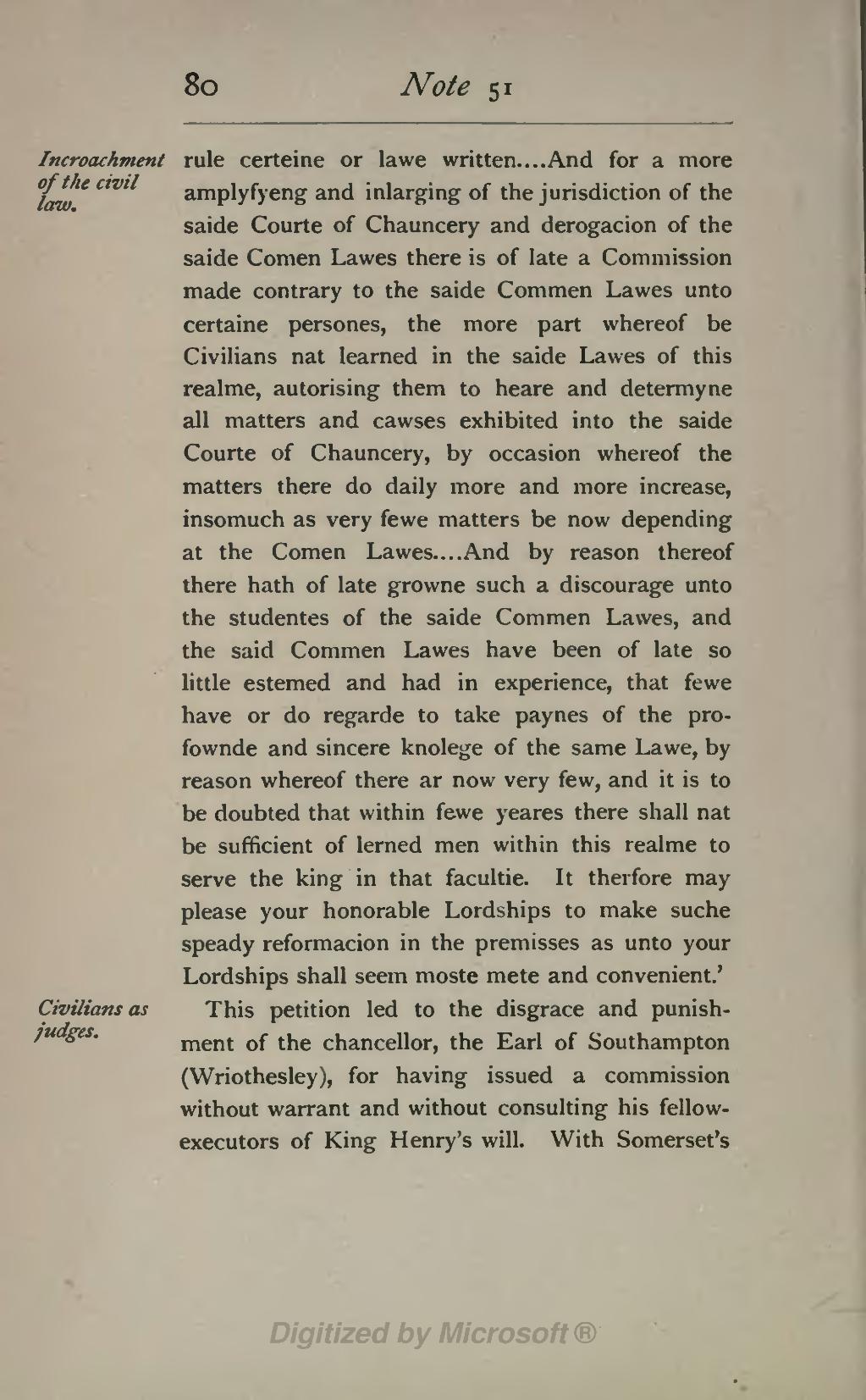Incroachment of the civil law.rule certeine or lawe written.…And for a more amplyfyeng and inlarging of the jurisdiction of the saide Courte of Chauncery and derogacion of the saide Comen Lawes there is of late a Commission made contrary to the saide Commen Lawes unto certaine persones, the more part whereof be Civilians nat learned in the saide Lawes of this realme, autorising them to heare and determyne all matters and cawses exhibited into the saide Courte of Chauncery, by occasion whereof the matters there do daily more and more increase, insomuch as very fewe matters be now depending at the Comen Lawes.…And by reason thereof there hath of late growne such a discourage unto the studentes of the saide Commen Lawes, and the said Commen Lawes have been of late so little estemed and had in experience, that fewe have or do regarde to take paynes of the profownde and sincere knolege of the same Lawe, by reason whereof there ar now very few, and it is to be doubted that within fewe yeares there shall nat be sufficient of lerned men within this realme to serve the king in that facultie. It therfore may please your honorable Lordships to make suche speady reformacion in the premisses as unto your Lordships shall seem moste mete and convenient.'
Civilians as judges. This petition led to the disgrace and punishment of the chancellor, the Earl of Southampton (Wriothesley), for having issued a commission without warrant and without consulting his fellow-executors of King Henry's will. With Somerset's
